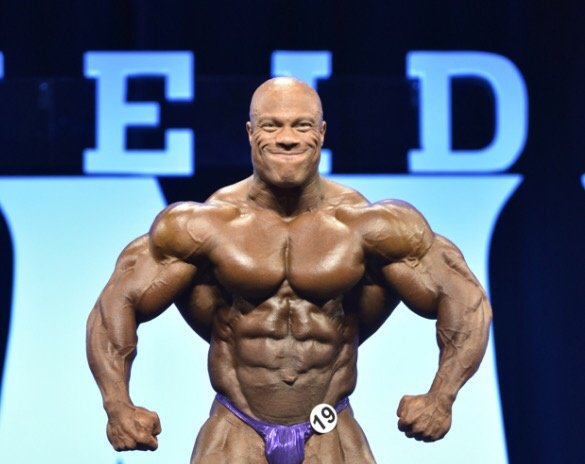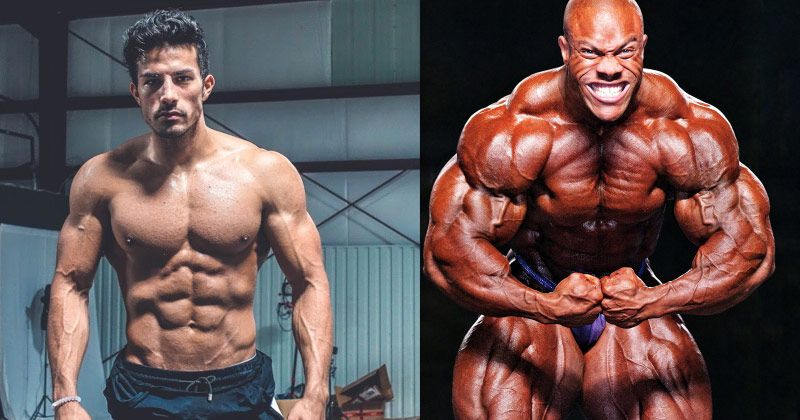The Mr. Olympia contest represents the pinnacle of professional bodybuilding, where the world’s greatest physiques are showcased on stage. However, the massive muscularity of modern competitors has fueled longstanding debates around performance-enhancing drug use. Today, in this blog post, we will share the official policies and regulations regarding anabolic steroids and other prohibited substances at Mr. Olympia events.

Contents
Are Steroids Allowed In Mr Olympia?
Steroids are not allowed in Mr. Olympia or any other competition governed by the International Federation of Bodybuilding and Fitness (IFBB). The IFBB follows the World Anti-Doping Agency (WADA) code, which strictly prohibits the use of performance-enhancing drugs like anabolic steroids.
Here’s the breakdown:
- Official Stance: Mr. Olympia and the IFBB have regulations in place to ensure a level playing field and protect competitor health. These regulations explicitly ban steroids and other performance-enhancing drugs.
- Testing: Athletes competing in Mr. Olympia undergo anti-doping tests to detect banned substances. Positive tests can lead to disqualification, suspension, and other penalties.
However, there is a complexity to this issue:
- Difficulties in Detection: Advanced steroid use and masking agents can make detection challenging.
- Open Secret: Some speculate that despite regulations, steroid use might still be prevalent in bodybuilding at the highest levels.
It’s important to remember that using steroids comes with significant health risks, including:
- Liver damage
- Increased risk of heart attack and stroke
- Hormonal imbalances
- Mood swings and aggression
If you’re considering bodybuilding, focus on achieving a healthy physique through proper diet, exercise, and adequate rest. These are the cornerstones of safe and sustainable muscle building.
Is there a Mr. Olympia for Natural Bodybuilders?
Yes, there absolutely is! Since Mr. Olympia doesn’t have a separate category for natural bodybuilders, other organizations cater specifically to them. The most prominent competition is the Natural Olympia.

Here’s a breakdown of the Natural Olympia:
- Focus: It’s a drug-tested bodybuilding competition held annually by the International Natural Bodybuilding Association and Professional Natural Bodybuilding Association (INBA/PNBA).
- Importance: The Natural Olympia is a major event for natural bodybuilders, promoting a version of the sport that emphasizes achieving a muscular physique without performance-enhancing drugs.
- Testing: Athletes are subject to rigorous drug testing procedures, including blood, urine, and even polygraph testing, ensuring a fair competition.
- Recognition: The Natural Olympia has gained recognition over the years, attracting top athletes and offering a significant prize pool.
Regulations on Performance-Enhancing Substances:
Performance-enhancing substances (PES) are strictly regulated in professional sports to ensure fair competition and protect athlete health. Here’s a breakdown of the key aspects:
Regulatory Bodies:
- World Anti-Doping Agency (WADA): The central organization that establishes the international standards for anti-doping. WADA creates and updates the Prohibited List, which outlines banned substances and methods.
- National Anti-Doping Organizations (NADOs): Individual countries or regions have their own anti-doping organizations responsible for implementing WADA’s code and conducting tests. Examples include the United States Anti-Doping Agency (USADA) and the UK Anti-Doping (UKAD).
- International Sports Federations (IFs): These federations govern specific sports (e.g., FIFA for soccer, IAAF for athletics). They have the authority to adopt and enforce WADA’s code within their sport, along with any sport-specific regulations.
The Prohibited List:
- WADA publishes an annual Prohibited List outlining substances and methods banned in competition and, in some cases, out-of-competition.
- The list categorizes substances based on their potential to:
- Enhance performance
- Pose a health risk
- Violate the spirit of sport (fairness and ethical conduct)
- Examples of banned substances include anabolic steroids, erythropoietin (EPO), growth hormone, diuretics, and masking agents.
Testing and Consequences:
- Athletes undergo in-competition and out-of-competition testing to detect banned substances.
- Positive tests can lead to serious consequences, including disqualification from competitions, suspension from sport, and forfeiture of medals.
- Depending on the severity of the violation, athletes might face additional sanctions.
Controversies Surrounding Steroid Use in Bodybuilding:
Steroid use in bodybuilding is a complex issue riddled with controversy. Here’s a breakdown of the key points:

Arguments Against Steroid Use:
- Health Risks: Anabolic steroids, the most common type used in bodybuilding, come with significant health risks, including liver damage, increased risk of heart attack and stroke, hormonal imbalances, and psychological issues like aggression.
- Unfair Advantage: Steroids create an uneven playing field, giving users a significant advantage in terms of muscle mass and recovery over natural bodybuilders.
- Addiction Potential: While not physically addictive in the same way as some drugs, steroids can lead to psychological dependence and compulsive use.
- Body Image Distortion: The emphasis on extreme physiques achieved through steroids can distort healthy body image standards and lead to unrealistic expectations.
Arguments For Steroid Use (With Reservations):
- Individual Choice: Some argue that adults should have the autonomy to choose whether to use steroids, even if there are risks involved.
- Open Secret: Proponents of this view acknowledge the health risks but suggest steroid use might already be widespread in competitive bodybuilding, making it an open secret.
- Focus on Harm Reduction: They argue for a harm reduction approach, educating bodybuilders on safer steroid use practices and encouraging responsible steroid sourcing.
Frequently Asked Questions
Are steroids in bodybuilding competitions fair?
The fairness of steroid use in bodybuilding competitions is a topic of debate due to the potential performance-enhancing effects and unequal playing field it creates.
What are the health risks of using steroids in bodybuilding?
Using steroids in bodybuilding can lead to serious health risks such as liver damage, cardiovascular issues, hormonal imbalances, and mental health effects.
How are steroid use regulations enforced in bodybuilding competitions?
Enforcing drug testing protocols for steroids in bodybuilding competitions faces challenges due to loopholes, varying testing effectiveness, and the evolving nature of performance-enhancing substances.
What impact does steroid use have on the fitness industry?
Steroid use in the fitness industry raises concerns about promoting fair competition, safeguarding athlete health, influencing body image ideals, and shaping the industry’s reputation.

Hello, I’m Ravindra. Over the years, I’ve immersed myself deeply into the world of fitness and health, transforming both my body and mind. Writing has allowed me to share my journey, insights, and expertise with those just starting out and seasoned fitness enthusiasts alike. Beyond just routines and diets, I believe in inspiring others to adopt a holistic approach to well-being.
